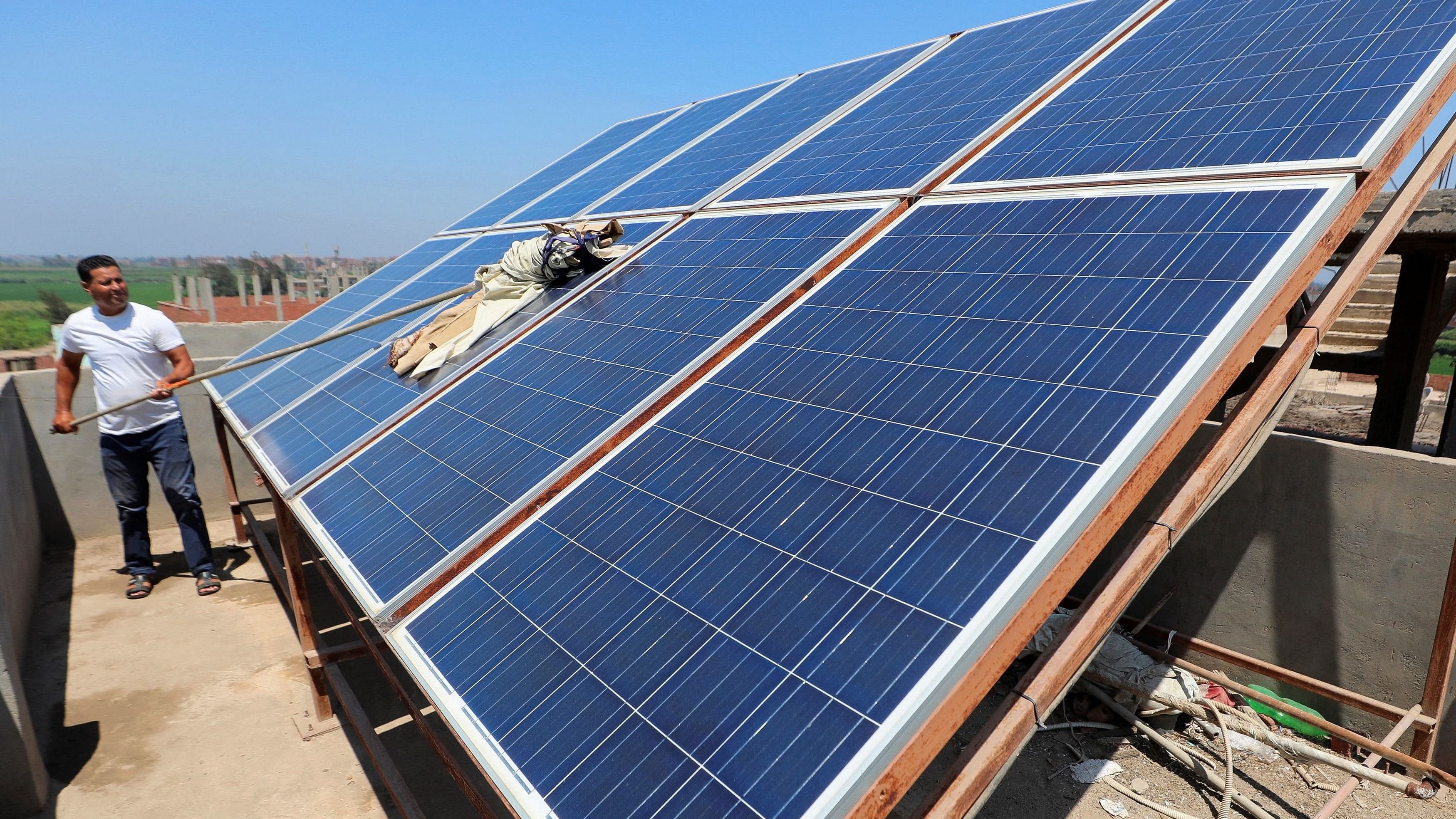
Representational Picture
Credit: Reuters Photo
New Delhi: The PM KUSUM scheme, which aims to promote solar energy in agriculture in India, has achieved only 30 per cent of its targets, according to a new report.
Launched in 2019, the Pradhan Mantri Kisan Urja Suraksha evam Utthaan Mahabhiyan (PM KUSUM) scheme's goal is to help farmers switch to solar power, making farming more sustainable and reducing dependence on traditional energy sources.
The report by the think tank Centre for Science and Environment (CSE) outlines findings from surveys conducted in Haryana, Punjab, Rajasthan, and Chhattisgarh and says the scheme has achieved only 30 per cent of its targets after six years, with the 2026 deadline fast approaching.
"As climate change continues to have increasingly widespread impacts, it is more critical than ever to invest in sustainable practices, especially in key sectors like agriculture," said Nivit Kumar Yadav, programme director for industrial pollution and renewable energy at CSE.
"In this context, schemes like PM KUSUM can significantly advance India’s climate action efforts, but only if implemented with care and precision," he said.
The scheme is divided into three parts: Component A - installing mini-grids on unused lands, Component B - replacing diesel water pumps with off-grid solar pumps and Component C - replacing electric water pumps with on-grid solar pumps and installing mini-grids for agricultural solarization.
The CSE said that progress has been slow, with most efforts focused on Component B. States like Haryana, Rajasthan, Maharashtra, and Uttar Pradesh are leading in implementation, while Components A and C have seen minimal progress.
Farmers who have switched to solar water pumps are happy as these allow daytime irrigation and eliminate inconvenient night-time schedules and power cuts.
For example, a farmer from Aterna village in Haryana praised the scheme for making farming activities easier and more efficient.
Farmers who switched from diesel to solar pumps save significantly, with some farmers in Haryana saving up to Rs 55,000 annually.
According to the CSE, one of the principal challenges the scheme faces is the availability of cheap electricity for farmers, which diminishes the incentive to shift from electric water pumps to solar water pumps.
Also, farmers are often forced to opt for pump sizes larger than needed for their land.
Debajit Palit, professor of energy at the NTPC School of Business in Noida, said the scheme needs to be tailored to meet farmers’ specific requirements to be financially viable.
“If pump sizes are based on the land size and water requirements of different areas, rather than being kept uniform throughout the country, farmers could avoid the extra expenditure,” he said.
Another challenge is the centralisation of the implementation model in some states.
In Punjab, the CSE report said, the scheme's implementation is overseen by the Punjab Renewable Energy Development Agency, in contrast to Rajasthan, where each component has a different implementing agency.
Yadav said that a decentralised model is important to truly realise the potential of the PM KUSUM scheme.
“State implementing agencies with the necessary knowledge about each component should be responsible for the components within their expertise,” he said.
The CSE suggested that farmers should be allowed to pay for solar pumps in instalments, which will make it financially more viable for them.
The central government should increase financial support to states, especially to cover the rising costs of solar modules post-Covid, it said.